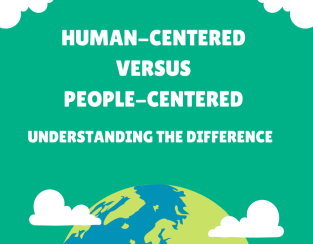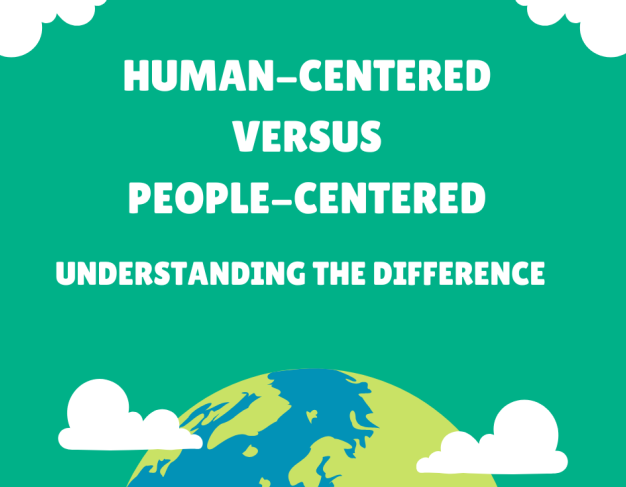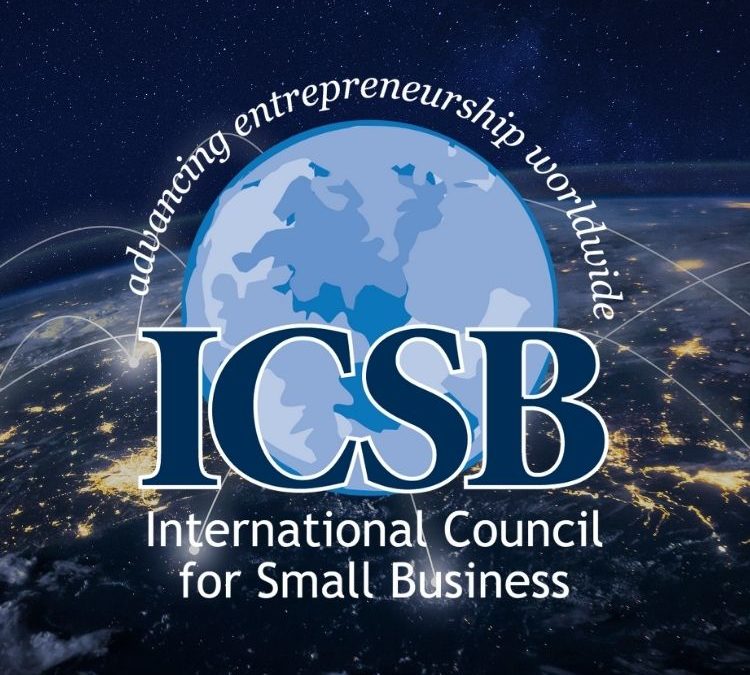The Institute of Public Accountants (IPA) is one of the three professional accounting associations in Australia, with 75 percent of our members being either advisers to Small to Medium Enterprises (SMEs) or SMEs themselves. The IPA’s reason is to improve small business quality of life, supported by a vision for every small business to have one of our members by their side.
Following a year memorable for isolation and social distancing, the IPA decided it was appropriate to rejuvenate and restore the sense of community within our membership base for 2021 and beyond. This was signified early in the year when it was decided to redefine one of our strategic themes to reflect this revised direction:
Build a professional community for the SME and SMP sectors.
The IPA has always been committed to making the small business count. This strategic shift to focus on creating and maintaining a professional community reaffirms the magnitude of the IPA’s passion to enhance the longevity and well-being of MSMEs. In addition, in 2021, the IPA strengthened its strategic focus on the United Nations Sustainable Development Goals (SDGs), selecting the following eight Goals as being the most relevant to our vision, strategy, and stakeholders:
- SDG 3: Good Health and Wellbeing
- SDG 4: Quality Education
- SDG 8: Decent Work and Economic Growth
- SDG 10: Reduced Inequalities (including a focus on SDG 5 – Gender Equality)
- SDG 11: Industry, Innovation, and Infrastructure
- SDG 13: Climate Action
- SDG 16: Peace, Justice, and Strong Institutions
- SDG 17: Partnerships for the Goals
This report will look closely at our chosen Goals, highlighting how the IPA has contributed to them in 2021 from the perspective of MSMEs and thereby reinforcing and rebuilding our sense of community.
SDG 3: Good Health and Wellbeing
Before the pandemic, mental health was already recognized as a significant issue facing small business people, including professionals and many accountants. The IPA has an existing partnership with a clinical health provider to offer initial clinical support to members with mental health concerns. To do more and help more small business people, including the clients of members and members themselves, the IPA partnered with Deakin University (based in Melbourne, Australia) to research the role played by accountants and other professional advisers in improving the mental well-being of small business people. Preliminary research indicated that using a business professional helped to improve the mental well-being of small business owners and operators. It was decided that it was worthwhile to extend the research and develop a training program that could be scaled for use in other jurisdictions and across various economic sectors.
The program known as Counting On U was born with a host of partners, including other professional associations, mental health groups, and highly regarded medical professionals from Deakin and other universities. It attracted the attention of the Australian Government, which provided grants of over AU$3 million. At this stage, Counting On U offers mental health training for accountants, financial planners, bookkeepers, and other business advisers, providing tools to identify signs and assist their SME clients with accessing professional support. It has also been designed to help the adviser themselves, as they are often vicariously impacted and can develop anxiety and other mental health concerns.
While the Covid-19 response in Australia focused on protecting physical health and our hospital system, there is widespread acknowledgment of the challenges that ensued for mental health. This, in addition to the IPA’s existing awareness and promotion of mental health, led us to compile numerous additional resources and tools dedicated to mental health and resilience, including access to a range of Corporate Social Responsibility partners, free education and training, and materials from (amongst others) Australia’s RUOK, an organisation dedicated to asking the simple question – “are you okay?”.
Mental health is not only a medical issue but also an economic one with broad implications for the whole economy. The IPA has been vocal on many fronts, including advocacy, where we have promoted recommendations to enhance the mental well-being of small business people. The effects of mental health can impact a person’s ability to participate and prosper in the community and workplace. For business owners and operators, it can affect their employees and the ongoing viability of their business (business failure/ exit also has a negative health impact). Reforms must extend across workplaces, education institutions, the judicial system, the health system, and the community.
SDG 4: Quality Education
The IPA is undergoing an ‘education transformation’ by designing future education aligned with a sustainable accounting and finance profession. The rate of change occurring within most sectors of the global economy is unprecedented, significantly outpacing the adaptability of units and courses offered by many higher and vocational education institutions. The outcome of the transformation will be a relevant approach to education that supports lifelong learning and focuses on competency.
Identifying the role of short courses and micro-credentials in the future of education, the IPA released its first digital short course in 2021: Artificial Intelligence (AI) for Accountants. The course introduces the principles and ethical considerations underpinning AI and machine learning, focusing on the challenges and opportunities for small-to-medium practitioners and SMEs.
The course is delivered online with live workshops, promoting engagement and a sense of community between peers and educators. This is one example of the IPA’s investment in new learning platforms and systems which promote sharing and questioning. This has been enabled by partnering with progressive and experienced educators and encouraging more involvement by members and other professionals in the learning experience.
SDG 8: Decent Work and Economic Growth
This Goal is directly linked to the IPA’s advocacy, policy, and research work, which is heavily centred on economic policy. Underpinning this effort is the work of the IPA Deakin SME Research Centre, a joint venture between the IPA and Deakin University. The Centre produces a diverse range of research exploring issues that impact small businesses and SMEs.
The recent and current work program covering impactful research and academic papers includes:
- Productivity: Small Business White Paper 3.0 focuses on innovation policy, including the most effective levers to boost Research & Development (R&D) (see below under SDG 11).
- Sustainability: Looking at the SDGs with a focus on defining and measuring outputs and capturing intangibles; and how these apply to SMEs.
- Innovation: This project focuses on patents filed by SMEs and small businesses as a measure of innovation. The outcomes can be used in several ways to promote small business innovation, including matching the different players in the innovation/ patent ecosystem, such as patent attorneys, investors, government, and others.
- Exporting: The Research Centre has explored the linkages between innovation, exports, and productivity, including the role of intangible resources in SME export performance. The research report notes:
“Results suggest SME firms that innovate and have the required technical [or] managerial ability skills have a greater propensity to export. Indeed, technical skills are relatively more important for propensity to export than business skills. Furthermore, when SMEs are incentivized to innovate by using either government support or R&D collaboration, the propensity to export by SMEs increases significantly. Results also show that Australian small business exports and innovation are significantly reliant on five industry sectors. At the same time, SMEs with foreign ownership have a higher propensity to export compared to SMEs with no foreign ownership.”
These five industry sectors are:
- Mining
- Manufacturing
- Wholesale trade
- Information media and telecommunications
- Public administration and safety.
- Funding: Research has been undertaken based on an international comparison of small business agencies, focusing on the Small Business Administration (SBA) in the United States. The objective is to identify and apply the most compelling features and elements worldwide to design an appropriate model for Australia. The centralised capital access assistance programs are of particular interest given the lack of this feature in the Australian landscape. This research has translated into policy recommendations that the office of the Australian Small Business and Family Enterprise Ombudsman (ASBFEO) should evolve into a centralised small business hub comparable to the SBA.
The ASBFEO is an independent government agency that advocates in the best interests of the small business community. However, limitations of the model have been identified by the Research Centre as follows:
“Indeed, the Ombudsman is unable to “… duplicate the operations of other agencies … [, and] must transfer a request for assistance to another Commonwealth, State or Territory agency, if that agency could deal with the request” (ASBFEO Act 2015, Division 2, Sections 66-70). These limitations mean that the Ombudsman’s office can only advocate for the small business sector. Still, it is unable to administer and thereby provide centralised and widespread support to the small business sector in Australia.”
- Alternative funding: Other avenues for funding, both public and private are being examined, including their efficacy with small business performance. Developing a viable venture capital sector is a particular focus of the research.
SDG 10: Reduced Inequalities
Various research and commentary over many years have focused on the systemic socio-economic challenges and institutional barriers which limit opportunities and pathways for Aboriginal and Torres Strait Islander peoples in Australia to build sustainable businesses or to enter professions. Recognizing the problems that exist, the IPA began its ‘Reconciliation’ journey through the compilation of our first Reconciliation Action Plan (RAP). A RAP is a corporate document that marks a commitment to improving outcomes for Aboriginal and Torres Strait Islander peoples. Within our sphere of influence as a professional accounting body, we have identified the following as the key objectives of our RAP:
- Conduct cultural awareness training and other education to address unconscious biases within our organisation and membership.
- Increase awareness of the inequality faced by Aboriginal and Torres Strait Islander peoples and explore ways to create opportunities to increase equality.
- Review perspectives on Australia’s history, including the barriers that prevent Aboriginal and Torres Strait Islander peoples from establishing a sustainable business or pursuing a career in the professions.
SDG 11: Industry, Innovation, and Infrastructure
This Goal is linked to SDG 8, and the work and outputs which we have noted above are also relevant to the achievement of SDG 11. This is especially concerning industry and innovation, which are critical to achieving decent work and economic growth.
The year 2021 marked the release of the IPA’s third Small Business White Paper, titled Post COVID Policy Options to Enhance Australia’s Innovation Capabilities. As stated in the executive summary:
“…the White Paper presents a series of recommendations on how some judicious fine-tuning of government policies and regulations aimed at encouraging world-class innovation and R&D – particularly in the lagging small and medium-sized enterprise (SME) sector – could unlock this potentially rich future source of growth and prosperity, and ultimately help to secure the Australian economy against over-reliance on its currently narrow and potentially unstable foundations.”
The eight recommendations of this flagship thought leadership project informed various policy positions of the IPA in 2021 and leading up to the Federal Election in May 2022. The main focus has been increasing productivity growth through boosting innovation by changing tax levers; promoting more effective collaboration between SMEs and universities, including more significant investment in Co-operative Research Centres; increased data availability, policy experimentation; and regulatory reform. Australia lags comparable OECD economies on private sector innovation and research by most metrics. It is imperative to turn this around if Australia is to build a sustainable and diversified economy and maintain its living standards.
SDG 13: Climate Action
The urgency around climate action reached an all-time high in 2021, driven by the delayed COP 26 conference and updated science, as released in the Fifth Assessment Report from the International Panel on Climate Change (IPCC).
The accounting profession has been responding accordingly, and in 2021, the work of various organisations over the past decade culminated into the formation of the International Sustainability Standards Board (ISSB). Housed within the International Financial Reporting Standards (IFRS) Foundation (based in London, UK), the ISSB aims to create a standardised, consistent, and comparable global baseline for sustainability reporting that is held to the same rigour as financial reporting. Given the momentum around climate change, climate risk has been identified as the first topic of focus for the ISSB. The IPA has contributed to the consultations, expressing support for the ISSB, with a specific interest in scaling reporting developments designed for large companies into the MSME context.
To demonstrate a commitment to action on climate, the IPA has signed as a supporter of the Professional Bodies Climate Action Charter (PBCAC). This Charter acknowledges that no single profession has the resources and expertise to deliver an adequate response to climate change. Therefore, the PBCAC creates a collaborative forum for aspirational professional associations to innovate and support members with Paris-aligned and SDG-focused business models and strategies.
In addition, the International Federation of Accountants (IFAC) (based in New York, USA), and representing over 3 million accountants worldwide, has anchored its strategy in the SDGs and has encouraged all accounting bodies to contribute to the achievement of the SDGs by 2030. The IPA strongly supports the role of accountants, business advisers and businesses in general in contributing to achieving the SDGs.
On a more localised level, the IPA has introduced bespoke ESG courses and discussion groups for all business advisers, to raise their own awareness and capability to contribute to the achievement of the SDGs, with a specific focus on small business and SMEs.
SDG 16: Peace, Justice, and Strong Institutions
While creating and delivering value for members is our crucial responsibility and vital for continuity, the IPA’s central reason for being is to improve the life of small business. Accordingly, the IPA’s advocacy and policy platform aim to serve the needs of our members, the profession, and the best interests of the small business community and the public interest. This can only be achieved in the presence of strong institutions.
The IPA takes a collaborative and consultative approach to its advocacy; however, more recently, the IPA has adopted an approach of ‘net positive advocacy.’ This is described by Polman and Winston (2021) as “a natural step” for a business with a clear understanding of its purpose and how this interlinks with its values.
“Companies have long viewed ‘government relations’ as a way to resist regulation or fight for tax breaks and other special treatment. We propose, instead, that businesses approach governments openly and transparently, to improve the rules, help policy makers reach their goals, and solve larger problems for the benefit of all. We call this approach net positive advocacy.”
- Paul Polman & Andrew Winston (2021)
We believe that this concept and approach suits the governance (especially transparency and accountability) aspect of ESG and is, therefore, vital to building strong institutions. The IPA’s work in partnership with other organisations, described below concerning SDG 17, has contributed to building strong institutions in other countries in our region.
SDG 17: Partnerships for the Goals
The IPA strongly believes that the achievement of the SDGs relies on partnerships, as reflected in our activities and outcomes discussed throughout this report. In addition to our advocacy work, we have also undertaken practical activities to put these policies into practice, both domestically and internationally. One example is our work which contributes to capacity building in the Pacific, including the development and implementation of education programs over the last 12 months in the Solomon Islands and Fiji. The Australian Government is partnering in some of this work. The objective is to make the education programs scalable for implementation in other Pacific nations.
Specifically, we have entered into a mutual recognition agreement (MRA) between the IPA and the Fiji Institute of Accountants. The main objective is to ensure the transfer of skills and knowledge between the bodies and other support and development opportunities. This reflects that the accounting profession plays a pivotal role in achieving solid institutions such as those governing the financial sector.
We should also mention the IPA’s partnership with ICSB, which has grown over several years. This includes the establishment of a Knowledge Hub and the exchange of ideas and information, as well as participation in a range of ICSB activities. This recently culminated in co-hosting the virtual thought leadership event entitled, Why do we measure economic success through unicorns? This event brought together global experts to examine: Our social, economic, and natural environments have all changed, but our thinking about measuring success has not kept pace. How will we conduct and measure financial success to ensure our impact on nature and economic development becomes more realistic, responsible, and sustainable? Will it be possible to decouple economic growth from environmental degradation in line with the United Nations’ 10-Year Framework of Programmes on Sustainable Consumption and Production.
Concluding Remarks
While 2021 introduced the IPA’s strategic intent to foster a professional community for MSMEs, the work is certainly not over. The IPA hopes to enhance member engagement and community spirit by aspiring to increase member value. By leveraging this spirit, we also hope to contribute to achieving the SDGs by 2030. As we continue to learn and celebrate the diversity of our member base, inclusion and well-being initiatives are being prioritised in 2022 and beyond. MSMEs will always remain central to the IPA’s advocacy and activities, supporting our ultimate reason for being – to improve the quality of life of small businesses.











